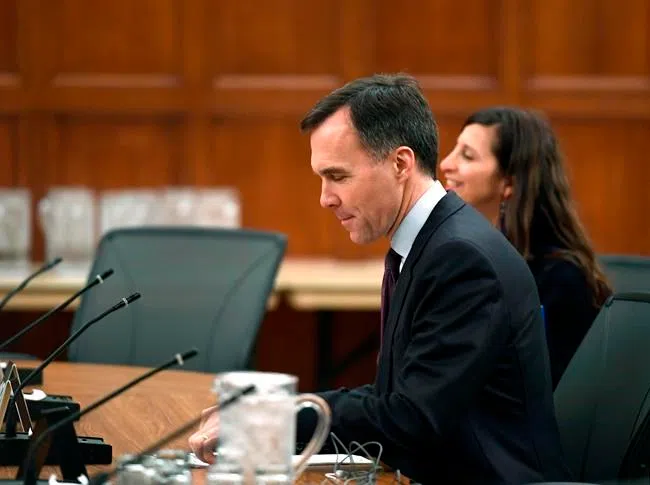
Morneau ducks queries on carbon tax gender costs, but doc says feds have done it
OTTAWA — Finance Minister Bill Morneau isn’t saying whether the federal government has analyzed how its carbon-pricing plan could affect women differently than men — even though documents show it has.
Morneau faced the question from Conservative MP Michelle Rempel during his appearance before the Commons committee on the status of women, where he was pressed to prove his 2018 budget did more than pay lip service to gender equality.
The budget was billed as the first to undergo a full gender-based analysis, which involved examining how every single measure would impact men and women in different ways.
But when Rempel asked Morneau repeatedly if a gender-based analysis had been completed for the carbon tax, he side-stepped the question.